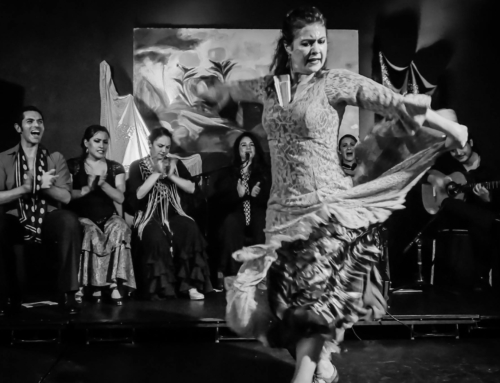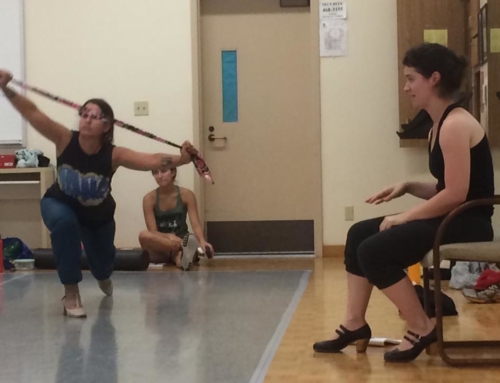I think artists often get pigeon-holed by audiences, critics, and even their peers. And I think that sucks. Big time.
I’ve heard through the grapevine that people talk about my shows as “out-there contemporary stuff” that they’re not interested in. These are people who have never actually gone to see my performances. I had someone ask me to choreograph something for them because they wanted something “more contemporary” and they knew I did “that sort of thing.” They’d never seen me perform either. (And, by the way, I hate the term contemporary, and it’s really an empty term, but perhaps that’s better saved for another blog post…) Apparently I’ve been pigeon-holed in the U.S. to being a contemporary flamenco dancer, more avant-garde, and I have training in contemporary dance and performance, which adds to that view of me. It’s not incorrect–I am proud of my more daring and experimental aesthetic and my other dance training. But it’s not all I am.
In Spain, the opposite happened. I got labeled as “La Gitana de Nueva York,” with people saying “¿Cómo puede ser que bailas tan gitana y tan flamenca y eres de los EEUU?” “How can it be that you dance so gypsy and flamenca-like but you’re from the U.S.?” The people that said that are Spaniards and flamencos who had only seen me dance in juerga and fiesta situations (informal flamenco gatherings), dancing por bulerias or tangos. Let’s just say I can get down when I want to, I’m not always super dance-y and technical.
Getting labeled with these narrow and subjective categories can be very limiting.
As audiences, we expect certain things from companies or artists, based on previous experiences (or worse, based on rumors and here-say). How can we change that? Artists need space to experiment and change, and sometimes make mistakes. That’s how we grow.
Then people hiring us expect certain things–they saw us perform in a specific context and want that same thing, but we’ve changed or the context is different…Maybe they’re let down or pleasantly surprised by a different performance. Again, how can we work with producers to provide what they’ve hired us for, while staying true to our artistic integrity?
I’ve grown a lot as a dancer in the last ten years. I think (I could be wrong) that a lot of people in NYC still think I dance the way I did when I first got to NYC, ten years ago. I’ve also grown a lot as a person, which means I’ve also grown as a performer. And my technique has improved substantially, and yet, people go off that initial judgement. First impressions are hard to break, which makes others’ seeing your development difficult. How can you change a first impression? Especially in something so subjective as art?
I don’t have answers for these questions, but I do at least want to hold myself accountable as a peer and audience member to allow my thoughts on artists to shift, to be open to allowing my idea of an artist’s work to shift as their work grows and morphs.





Leave A Comment